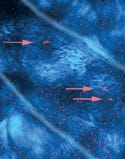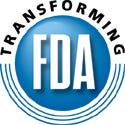Report Calls for FDA Nanotech Guidance
September 1, 2007
NEWS TRENDS
|
Gold nanorods will be one of many nanotechnologies that FDA will encounter. |
An FDA task force on nanotechnology recommends that the agency issue guidance on what information about nanomaterials it needs to see from medical device firms and others seeking product approvals. It does not identify a need for any new laws or regulations at this time. However, it does suggest that devices with nanoscale materials may be subjected to a higher level of scrutiny.
For products such as devices that are already subject to premarket approval, FDA has the authority to obtain information about their use of nanotechnology, the task force states in its report, which was issued in July.
Importantly, the task force endorses comments from industry and some academics that blanket restrictive policies are not the best idea, because uses of nanotechnology are so diverse. “The evolving state of the science regarding nanotechnology may warrant a case-by-case approach to assess whether sufficient evidence exists to show that products satisfy the applicable statutory and regulatory standards,” the report states. The task force, however, does want additional public input on how nanotechnology should be regulated for combination products.
It would like guidance to be issued on the following subjects:
When the use of nanomaterials may require the submission of more data.
When the use of nanomaterials may change a product's regulatory status or pathway.
When additional steps must be taken to address potential safety or quality issues.
When a Class I or Class II device needs premarket approval because of the use of nanoscale materials. “A PMA might be required for a product otherwise... considered Class I or Class II if the inclusion of nanoscale material raises questions of safety or effectiveness warranting clinical studies,” the report states.
When a sponsor should submit a new 510(k) for a modification to a previously cleared device that incorporates the use or increased use of nanoscale materials.
When industry should seek input from FDA on “significant risk” decisions regarding investigational devices that will contain nanoscale materials.
The report also suggests that any Class I and Class II devices exempt from submitting a new 510(k) after modifications are made may have to lose that exemption if they incorporate nanotechnology. This would be the case if “use of a nanoscale material were to qualify as a use of a different fundamental scientific technology.” In addition, information on particle size should be required in all nanotech-related submissions, the task force says.
|
In the meantime, the task force encourages any firm using nanotechnology in a product being developed to communicate with the agency early on. This is especially encouraged for those using nanotechnology in combination products.
The report also does not advise adopting a single definition of nanotechnology, as the term is used differently among various disciplines. This may change as FDA learns more about how nanoscale materials interact with biological systems.
It does acknowledge that “a material's properties can change when size is increased or decreased into, or varied within, the nanoscale range,” and so extensive testing of nanomaterials may be necessary. By the same token, the report notes that FDA may need to add reviewers with specific expertise in nanotechnology. Also, it states, it will be important to include developments with nanotechnology as part of ongoing training for FDA personnel.
Industry needs to do its part to advance knowledge, too. “A greater understanding of the properties of nanoscale materials and of trends in material development and uses would help focus data and testing requirements,” the report states.
Crucially, FDA will need to evaluate the adequacy of current testing approaches to assess the safety, effectiveness, and quality of products that use nanoscale materials. Consumer groups have expressed concern over whether current tests can predict potential long-range problems.
The task force is not recommending that use of nanomaterials be included on all labeling. It suggests that issue be considered on a case-by-case basis.
Copyright ©2007 Medical Device & Diagnostic Industry
About the Author(s)
You May Also Like



.png?width=300&auto=webp&quality=80&disable=upscale)
